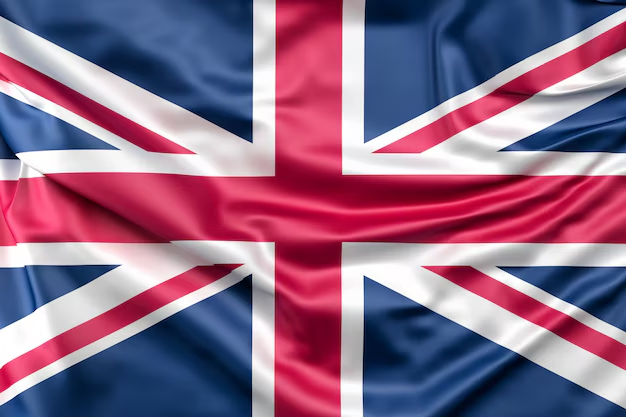
According to a report from the European Parliament, Hungary is challenging the fundamental values of the EU treaties. However, the EU is partly to blame by letting it slide for too long.
Hungary is no longer a full-fledged democracy. Instead, conditions in the central European country have deteriorated so much that it has become an “electoral autocracy”, according to a report adopted by the vast majority of MEPs in Strasbourg on Thursday 15th of September. The Hungarian government is trying to deliberately and systematically undermine the fundamental values of the EU treaties, the report adds. It also said EU inaction has contributed to “a disintegration of democracy, the rule of law and fundamental rights in Hungary”.
However, the process is stalled in the Council of EU States. At its end could be the withdrawal of voting rights in the Council of Ministers.
Now the EU wants to cut off up too 20% of the money Hungary is getting from the Union. This threat could have an actual effect. The reason: rampant corruption. Viktor Orbán announces reforms. But distrust is in order.
No country can claim to be completely free of corruption. In a functioning democracy, however, one can be sure that anything that comes to light in this regard will be prosecuted by an independent judiciary. This is precisely where things get tricky in Prime Minister Viktor Orbán’s Hungary. Not only has his party’s many years of autocracy fostered corrupt structures. Orbán has also ensured that the judiciary has been taken to the government’s control and can no longer pursue its activities unhindered. That is why the European Parliament recently stated that EU member Hungary can no longer be called a full democracy.
The European Commission now wants to draw the consequences from this depressing diagnosis. Since it cannot be sure that EU money flowing to Hungary will be used properly there, Budapest is to be deprived of several billion euros from EU funds for the time being. Since unanimity is no longer required for a Council decision to that effect, it’s a threat that could have an impact. And lo and behold, when it comes to money, Orbán suddenly becomes amenable. He has held out the prospect of some reforms. But fine words have been heard from him many times before. He should be judged by his deeds. Until proven otherwise, distrust is in order.
New Anti-Corruption Agency in Hungary
To counter criticism of Hungary’s rule of law, Viktor Orbán now wants to set up an anti-corruption authority. The opposition reacts with criticism and contempt. In April, after his surprisingly clear election victory, Hungarian Prime Minister Viktor Orbán made combative announcements to Brussels. The tenor was that the voters had strengthened him so much that his opponents in the EU had no choice but to back down. And they are not dependent on their handouts.
Now that a possible application of the rule-of-law mechanism is coming ever closer, the tones from Budapest sound different. Of course, others are responsible for giving in. Minister of justice Judit Varga was dispatched to Brussels last week and said afterwards that she had held intensive discussions with representatives of the Commission on “specific issues and concrete commitments”. The efficient and transparent use of EU funds is a common interest, she said, and Hungary is ready to provide “far-reaching guarantees” for this. So far, there is little on the table, but there are many announcements. The most concrete is that the government in Budapest has decided to set up an anti-corruption agency before November. The task of the independent body, which will be allowed to take on cases, is to prevent, detect and correct irregularities in the use of EU money.
Efficient use of EU funds
The specific details will be set out in the draft law to be submitted to the Hungarian Parliament by the end of September. In addition, the government wants to set up an anti-corruption working group supported by the authority, which will be composed of equal numbers of government and non-government persons. But the government has decided even more : Tibor Navracsics, the minister responsible for the use of EU funding, is to increase the efficiency of tenders and explain the reasons in cases where only one bidder appears.
The opposition in Budapest has responded to the announcements with disapproval, and in some cases with derisio. As is often the case, the criticism was most sharply summed up by Ákos Hadházy, a nonpartisan member of parliament : “Have you heard the joke that the government is setting up a new anti-corruption agency?” He doubts that a government-appointed agency, of all things, would investigate such cases. His distrust is understandable considering Orbán could simply allow Hungary to join the European Public Prosecutor’s Office.
Benefits for Orbán’s entourage?
Polt, Hungary’s top prosecutor, is often criticized by the opposition for letting investigations into people in Orbán’s political or personal entourage bog down. The most prominent example is a report by the EU anti-fraud agency OLAF, ignored by the prosecutor’s office, on corruption in municipal street lighting contracts, which also involved a company with which a son-in-law of the prime minister was connected.
Without concrete papers on the matter, there are media reports of further steps the Orbán government would take to address concerns in Brussels. The planned “Authority for Integrity” would be staffed in a non-political manner, with officeholders nominated by an international panel. But this is just organisational, and a little superficial considering the priority which is to de-corrupt the country. What would be a great start for Hungary is an extended asset declaration obligation for parliamentarians, a new regulation of foundations for asset management and a law according to which the authorities would have to support OLAF investigations.
References
https://dailynewshungary.com/hungarian-justice-minister-in-brussels-to-discuss-eu-funds/
https://twitter.com/hadhazyakos?lang=de
https://balkaninsight.com/2020/02/27/the-subsidy-paradox-how-eu-cash-props-up-populists/
By The European Institute for International Law and International Relations.













